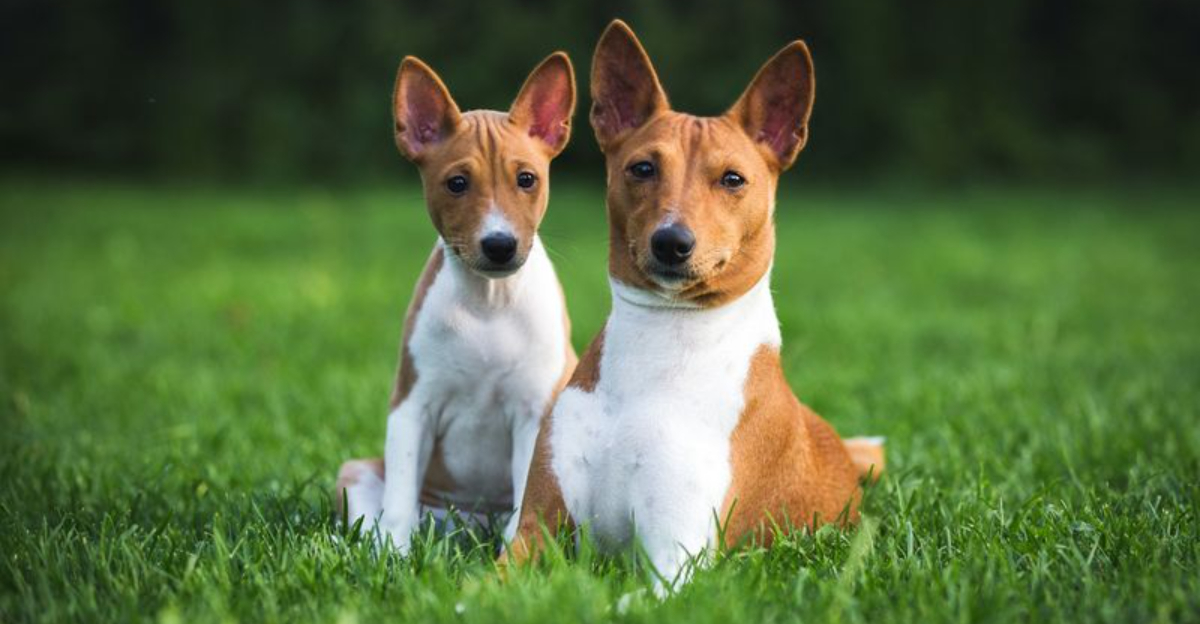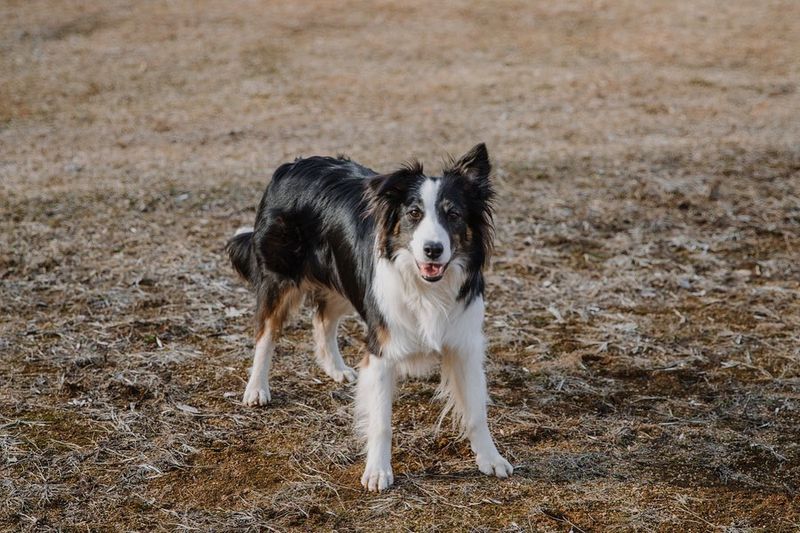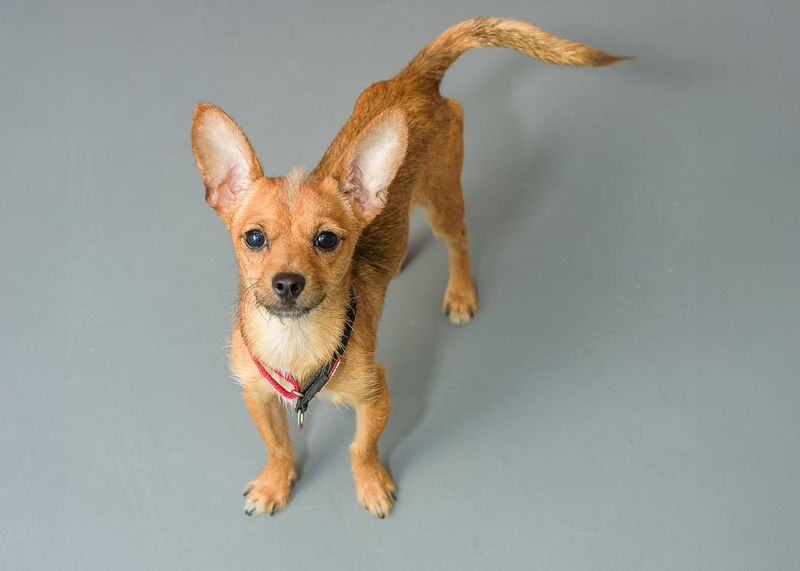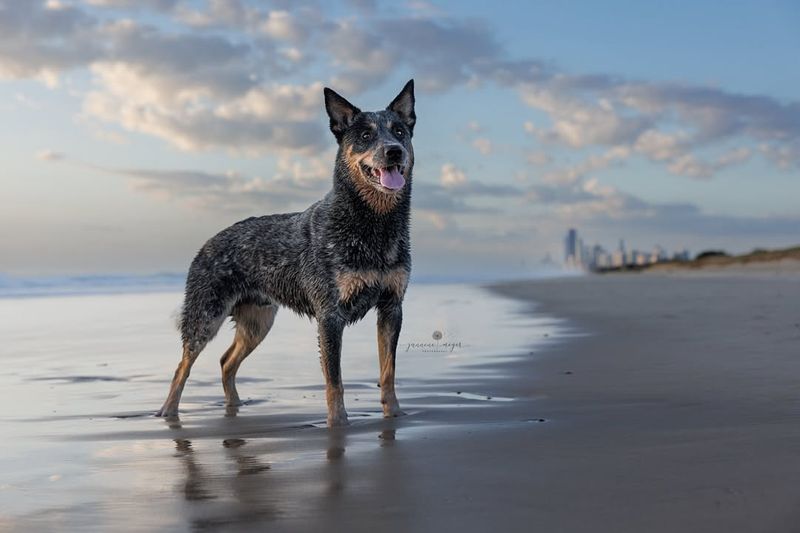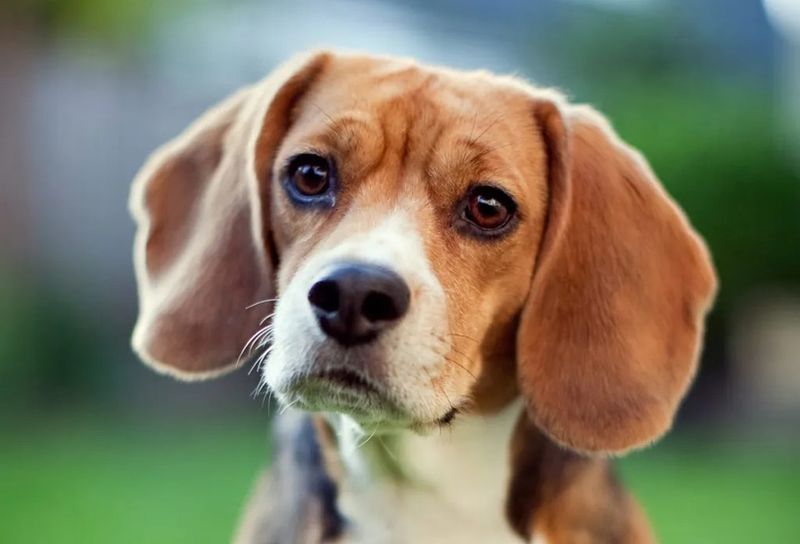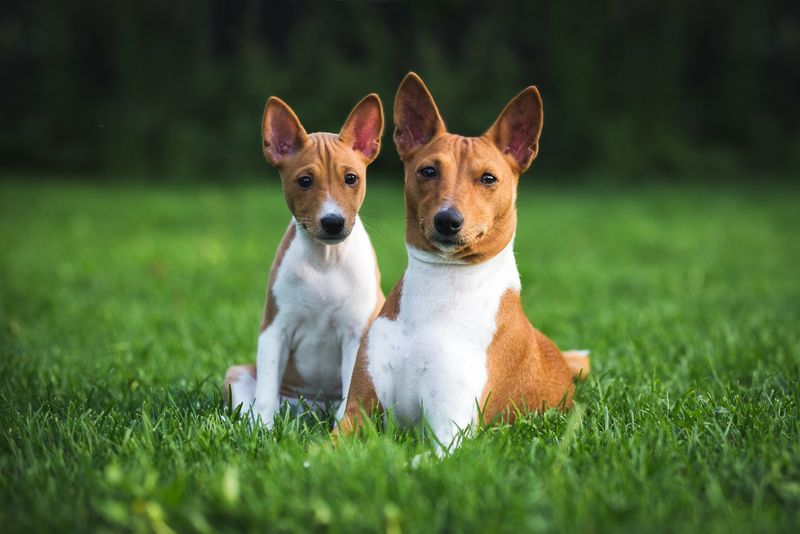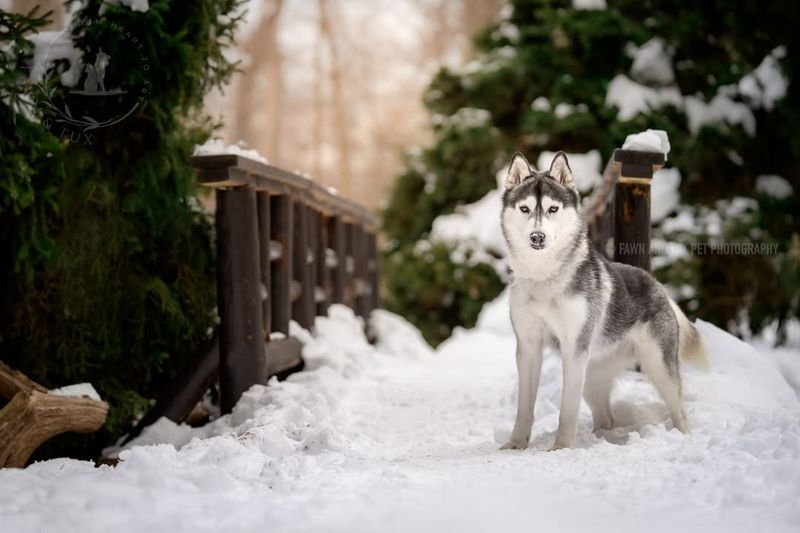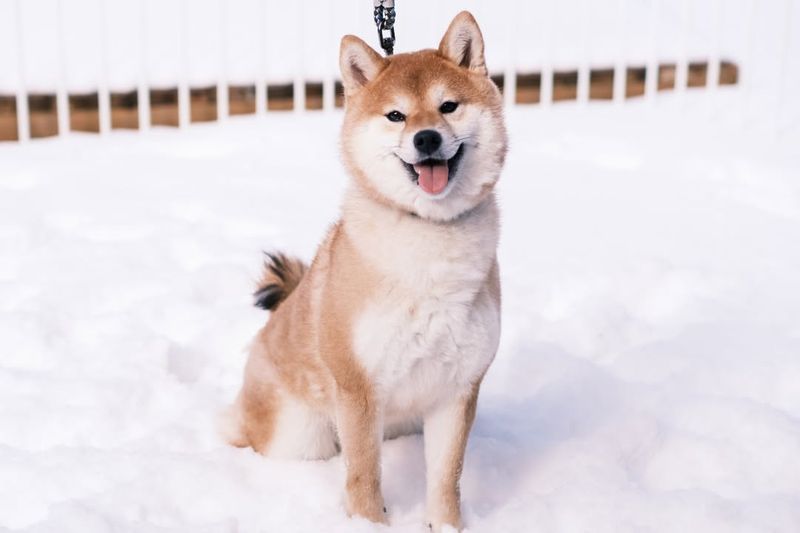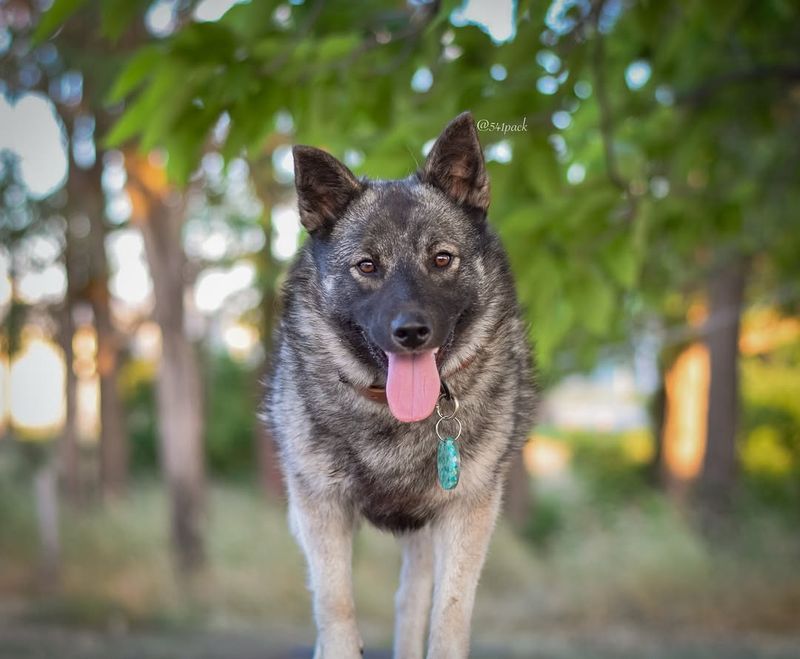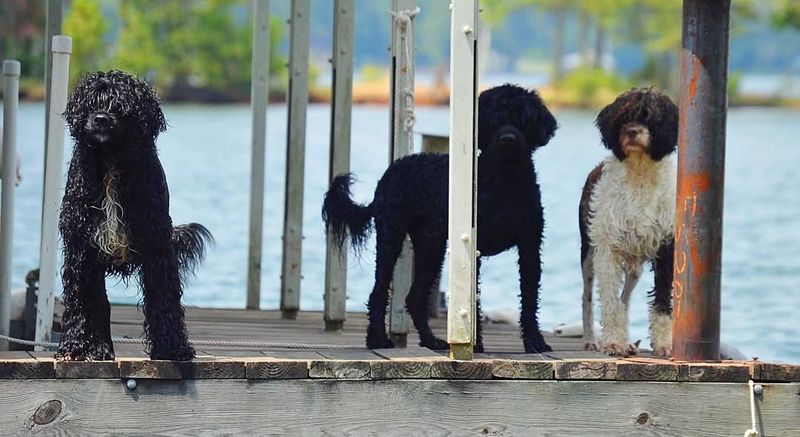In the world of dog ownership, choosing a breed with minimal genetic health issues can lead to a happier, longer life for your pet. While no breed is entirely free of health problems, some are known for their robust health and longevity.
Border Collie
Known for their intelligence, Border Collies are the geniuses of the canine world. These dogs are often employed in herding due to their exceptional work drive and quick learning abilities.
Originating from the border regions of Scotland and England, they have a history steeped in working alongside shepherds. Their alertness and agility make them excellent companions for active individuals or families.
The breed is generally healthy, exhibiting fewer genetic health problems compared to other working dogs. Their boundless energy and keenness to work make them suitable for various dog sports.
Chihuahua
The Chihuahua might be small in stature, but it boasts a personality larger than life. Known for being feisty and fiercely loyal, Chihuahuas often form strong bonds with their owners.
Despite their diminutive size, they are known for their relatively good health and longevity. Originating from Mexico, they come in both smooth and long-coat varieties.
Chihuahuas require minimal exercise, making them ideal for apartment living. While they can be prone to dental issues, overall, they face fewer genetic health problems, making them a popular choice among small dog enthusiasts.
Australian Cattle Dog
The Australian Cattle Dog, also known as the Blue Heeler, is renowned for its durability and intelligence. These dogs excel in herding cattle, showcasing their stamina and perseverance.
They originate from Australia, where they have been integral to livestock farming. These dogs are not only hard workers but also make loyal companions.
Possessing a robust health profile, Australian Cattle Dogs have fewer genetic health issues, which contributes to their longevity. Their active nature makes them well-suited for outdoor adventures and farm life.
Beagle
Beagles are charming hounds known for their excellent sense of smell and tracking abilities. Their friendly and curious nature makes them a favorite among families and hunters alike.
Their history dates back to ancient Greece, and they have been popular as hunting companions for centuries. Beagles are relatively low-maintenance in terms of grooming and exercise needs.
They are generally healthy with fewer genetic problems, although like all breeds, they can be prone to certain health issues. Their cheerful disposition and adaptability make them an enduring choice for many.
Basenji
The Basenji, often called the “barkless dog,” is famed for its vocal uniqueness. This breed doesn’t bark like most dogs but communicates with a yodel-like sound, thanks to their uniquely shaped larynx.
Hailing from Africa, Basenjis have an ancient lineage and have been companions to humans for thousands of years. Their elegant, sleek appearance and short coat make them not only eye-catching but also easy to groom.
Known for their cat-like cleaning habits, Basenjis require little grooming maintenance. Their strong immune system and minimal genetic issues make them a healthy choice for a pet.
Siberian Husky
Siberian Huskies, with their striking appearance and remarkable endurance, have captivated pet lovers worldwide. Originally bred for sledding in the cold climates of Siberia, they’re built for resilience.
Their thick double coat protects them against severe weather, while their friendly nature endears them to families. Huskies are known for their wolf-like looks and vibrant energy.
Despite their working dog origins, they suffer from relatively few genetic health issues. However, they require ample exercise and mental stimulation to thrive in any environment.
Shiba Inu
The Shiba Inu’s independent spirit and fox-like appearance make it a fascinating breed. Originating from Japan, they are one of the oldest and most popular breeds in their homeland.
Shiba Inus are known for their cleanliness and self-grooming habits, akin to cats. They are generally healthy, with a robust constitution that guards against many genetic issues.
Their spirited temperament requires patient training, but their loyalty and charm make it worthwhile. A Shiba Inu can be a delightful addition to any household seeking a unique companion.
Greyhound
Greyhounds are celebrated for their speed and elegance. Known as racing dogs, they have a history that dates back to ancient Egypt, where they were revered for their beauty and agility.
Despite their athletic prowess, Greyhounds are surprisingly docile and make excellent pets. They require minimal grooming and have a gentle disposition.
With a relatively small range of genetic health problems, Greyhounds lead healthy lives. Their love for comfortable lounging makes them ideal for indoor living, provided they get regular exercise.
Norwegian Elkhound
The Norwegian Elkhound, with its history as a hunter of large game like moose, is a symbol of Norway’s rugged landscapes. This breed is known for its bravery and determination.
Their weather-resistant double coat allows them to thrive in cold climates, while their keen senses make them excellent watchdogs.
Norwegian Elkhounds are generally healthy, with fewer hereditary issues than many other breeds. They are affectionate and protective, making them ideal companions for those who appreciate an adventurous spirit.
Portuguese Water Dog
Portuguese Water Dogs, with their curly coats and boundless energy, are known for their history as fishermen’s helpers. Originally from the Algarve region of Portugal, they assisted in herding fish and retrieving lost gear.
Their hypoallergenic coats and playful demeanor make them excellent family pets, especially for those with allergies. These dogs are intelligent and eager to please, thriving on companionship and activity.
Exhibiting fewer genetic health problems compared to other breeds, they lead active, healthy lives. Their love for water and playfulness make them a joy for active families.
